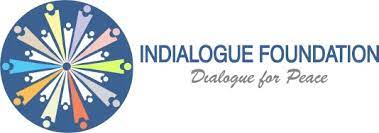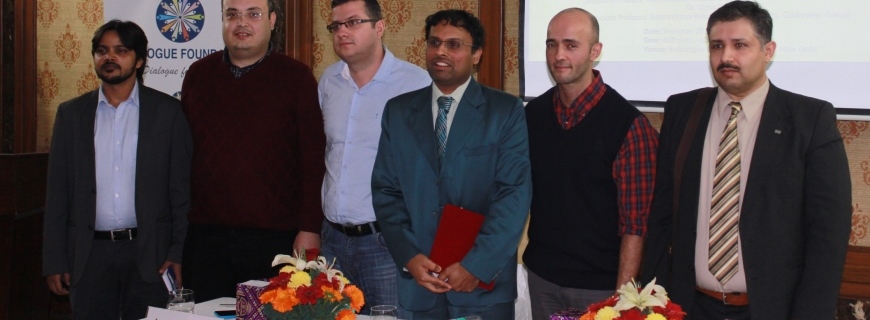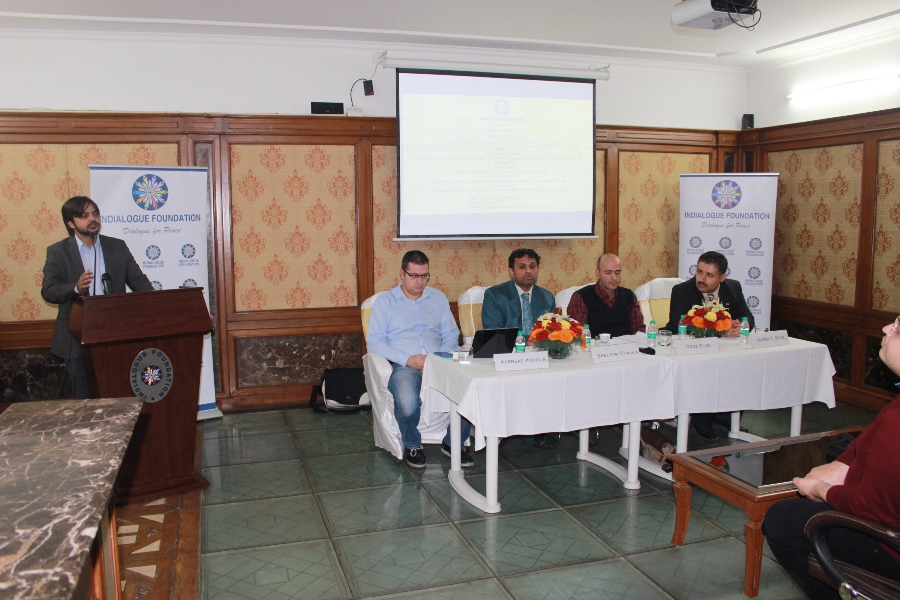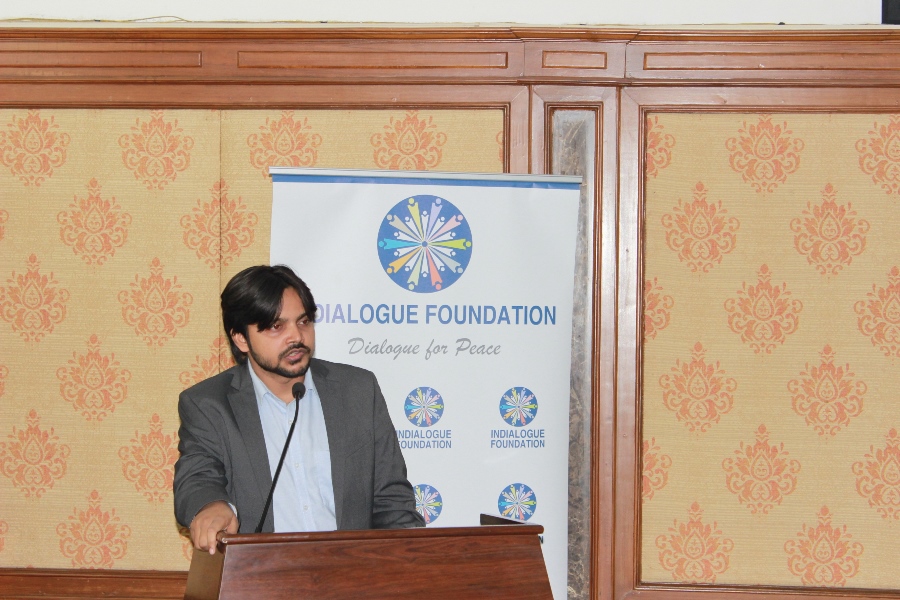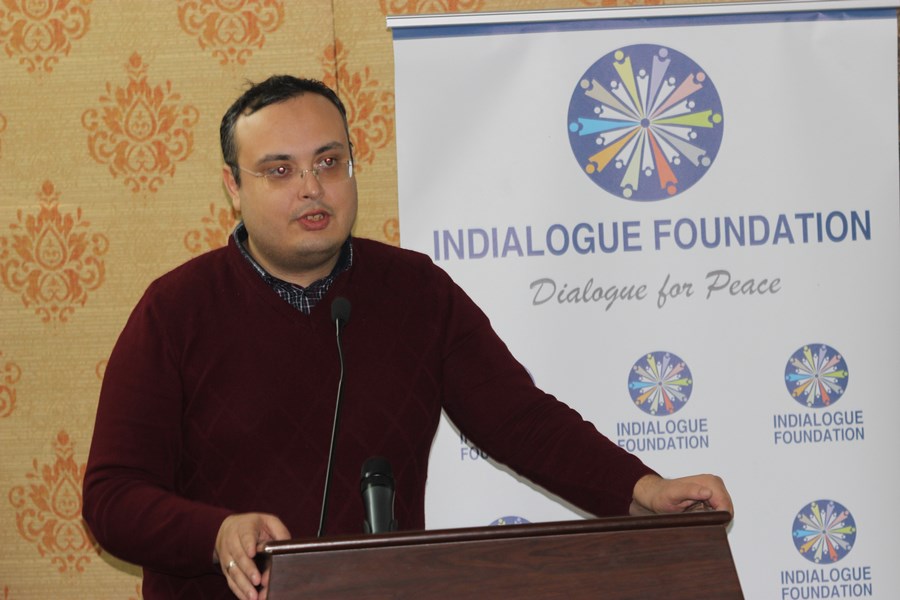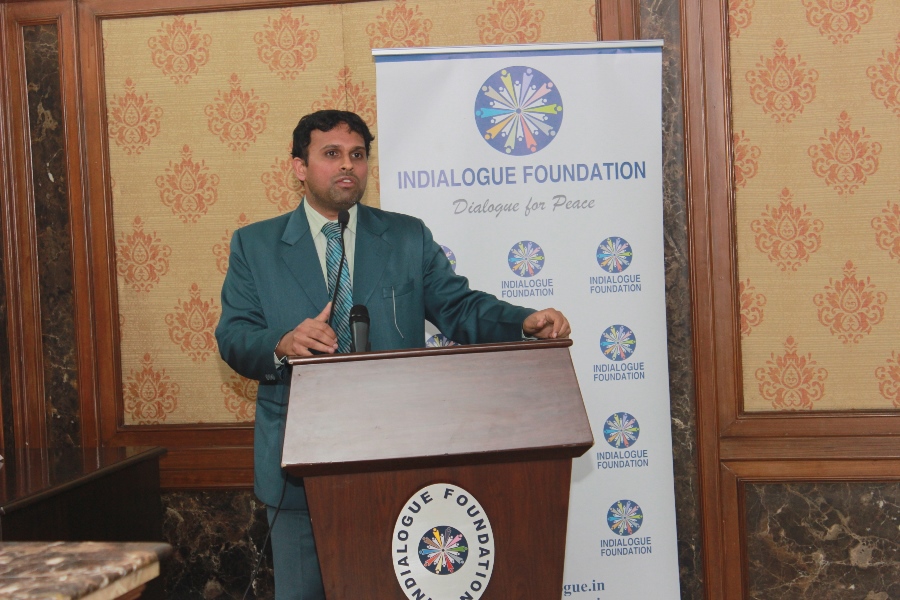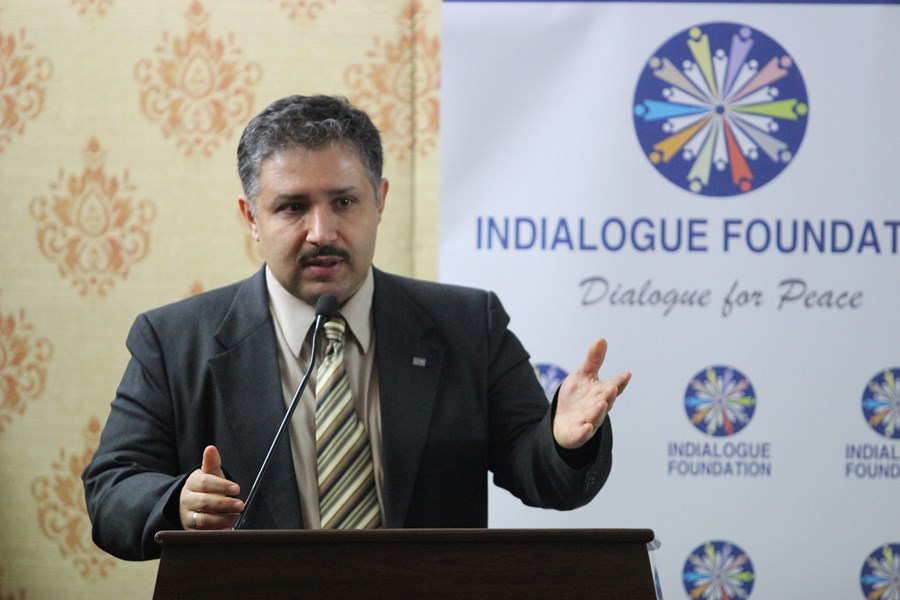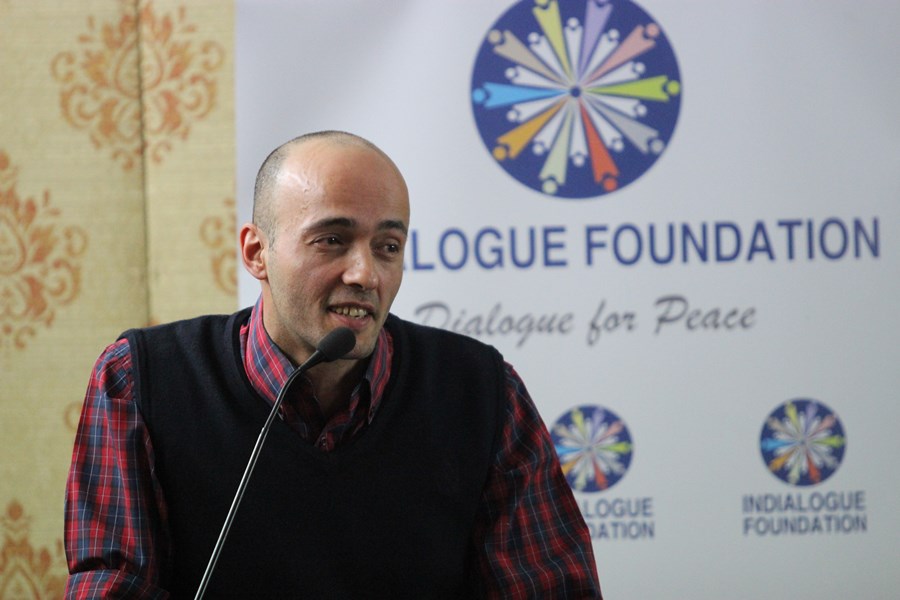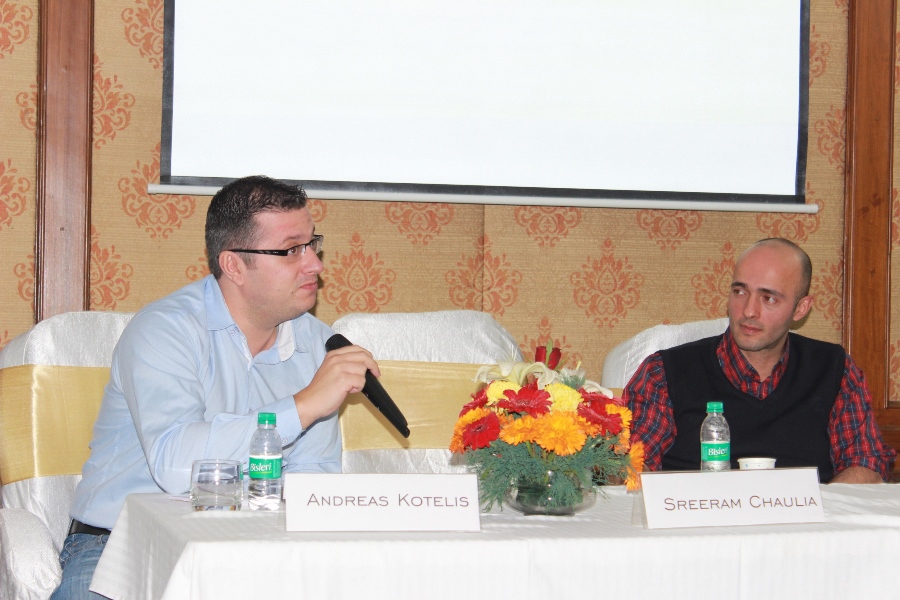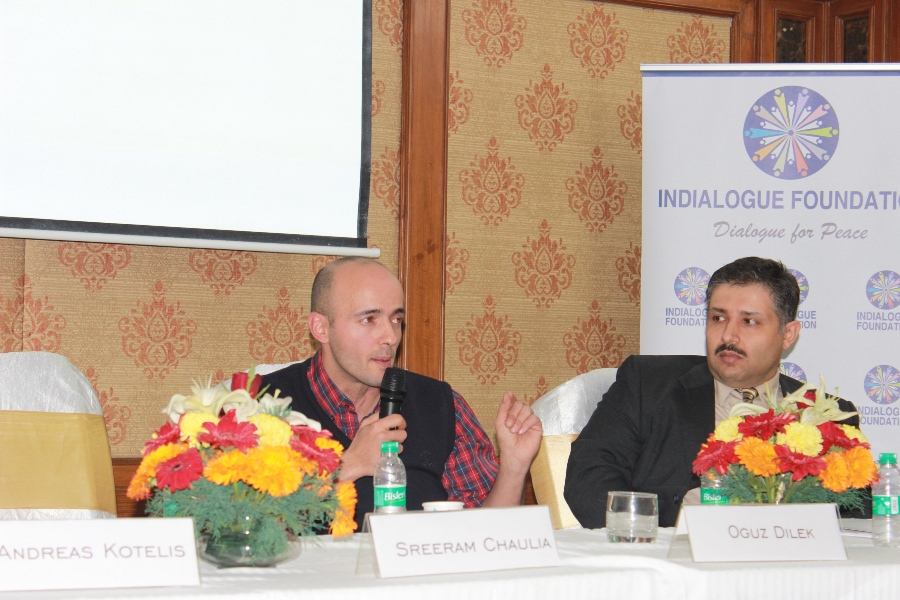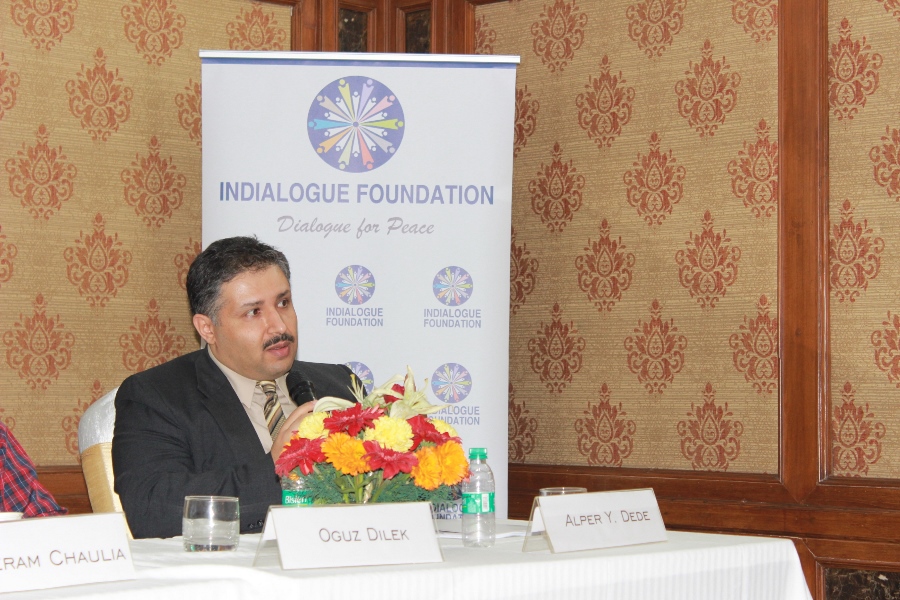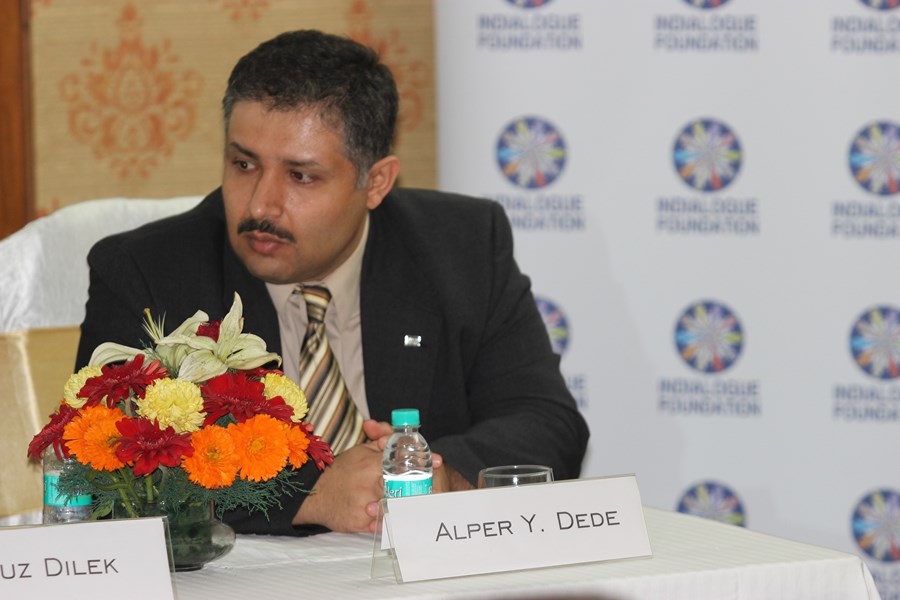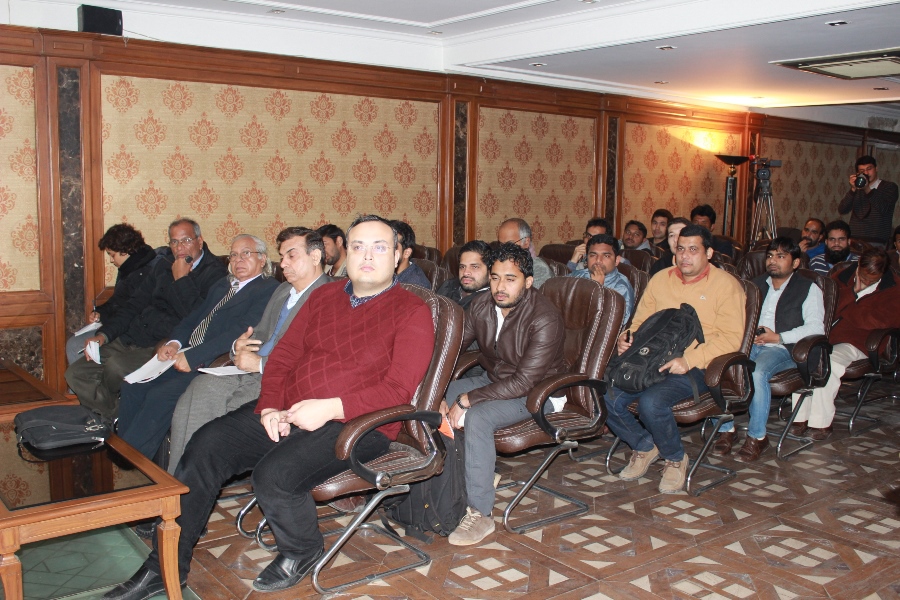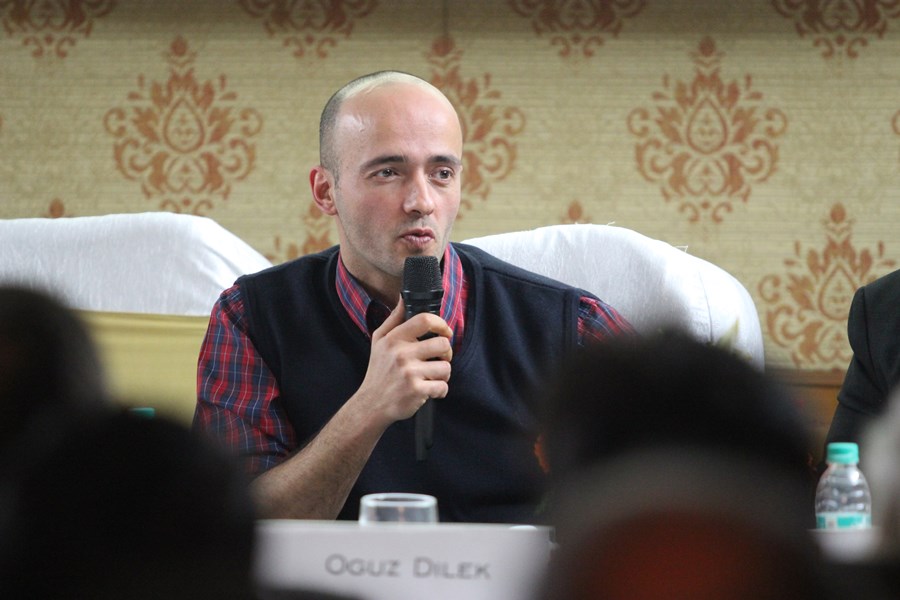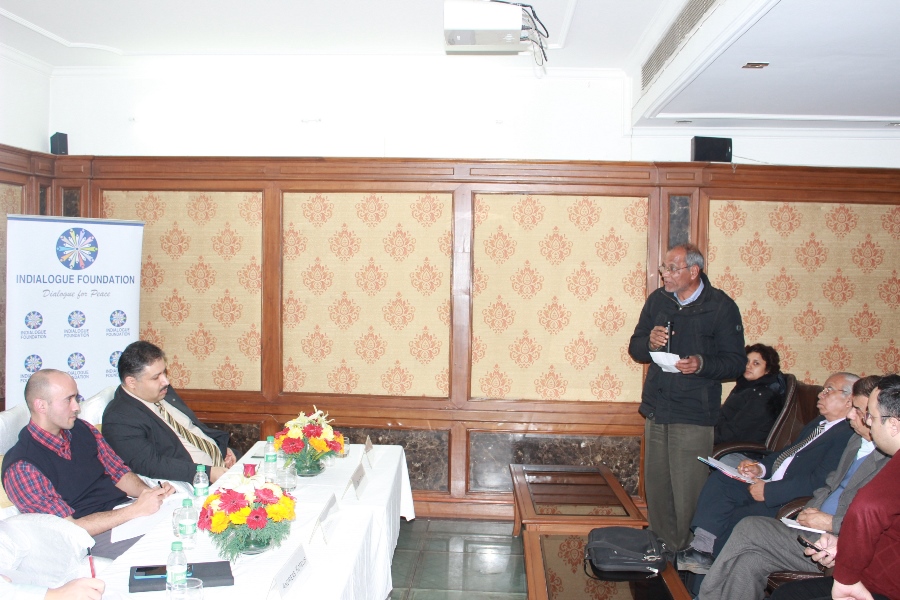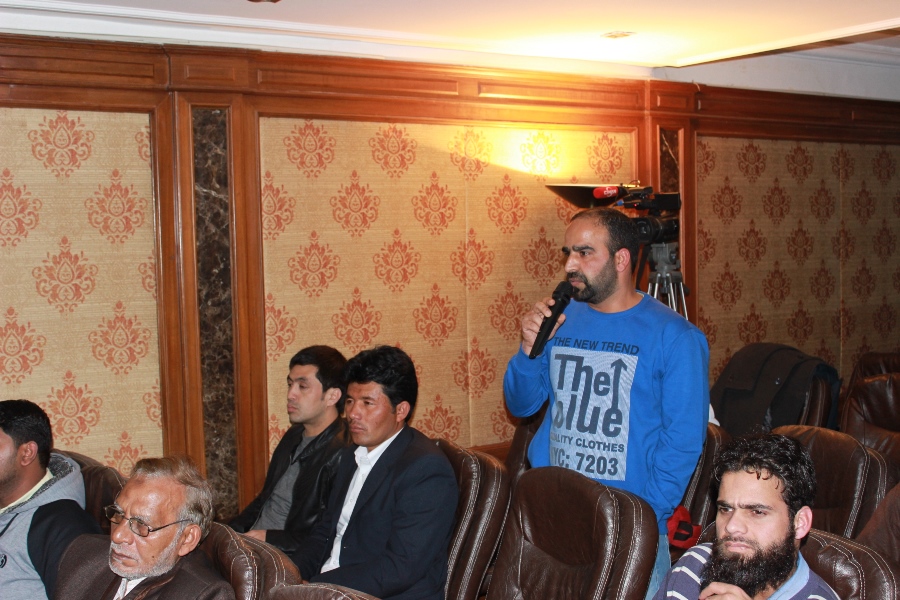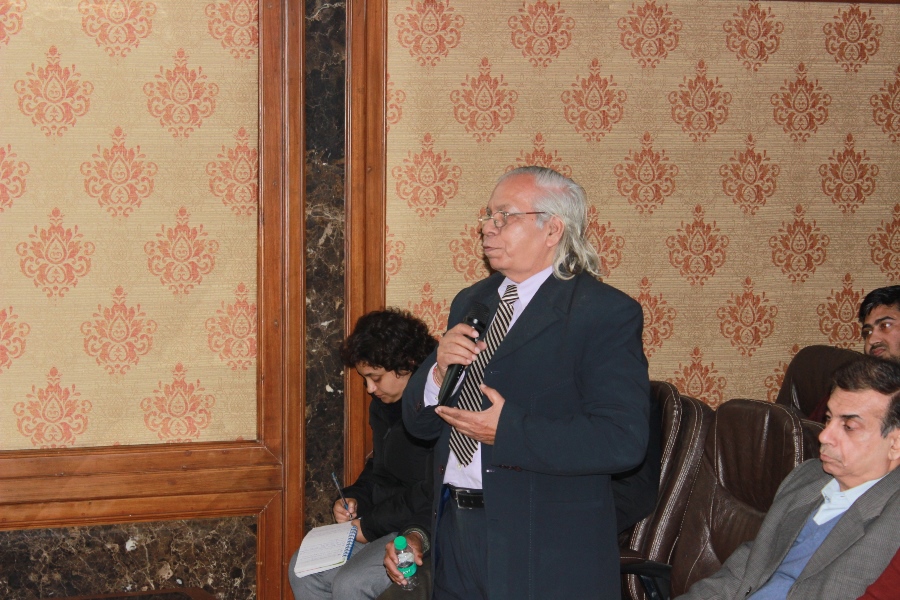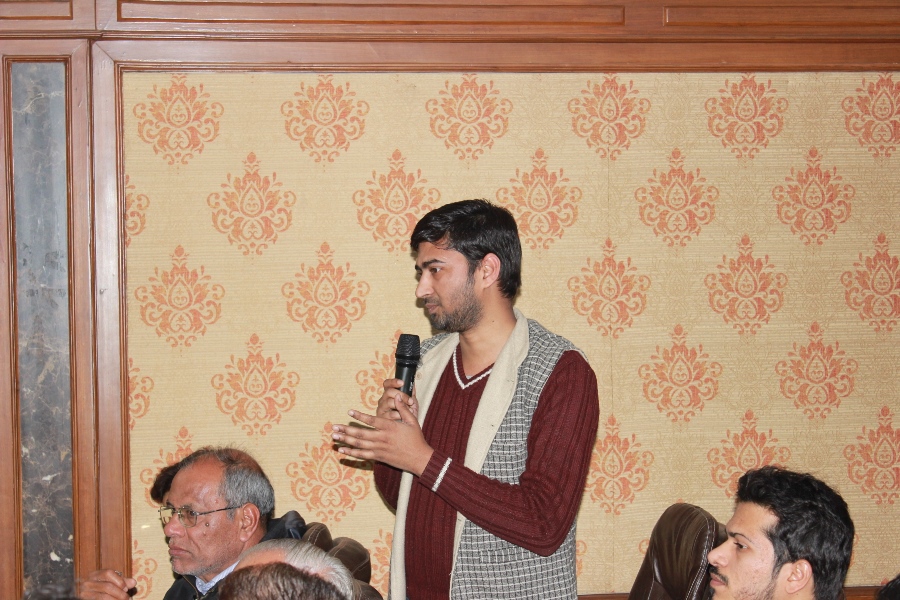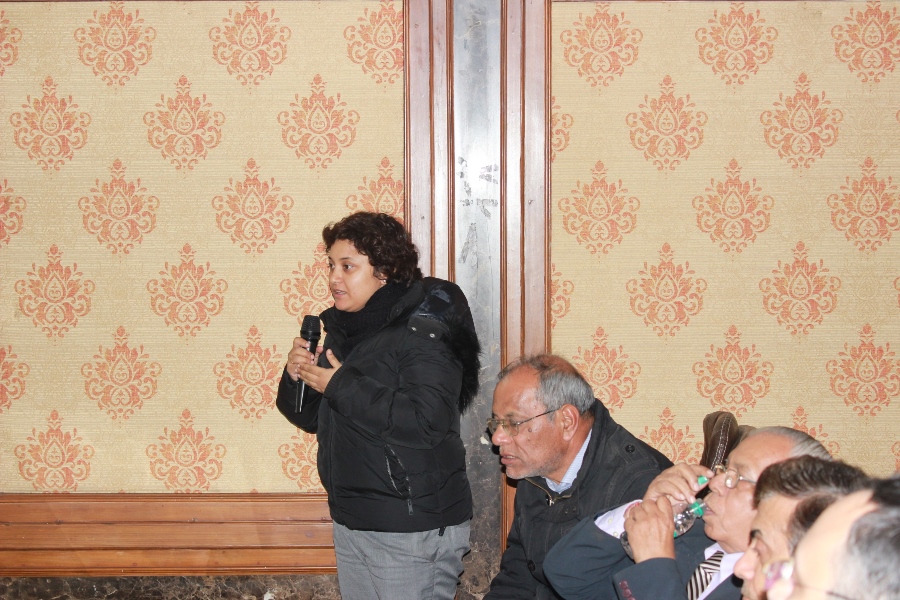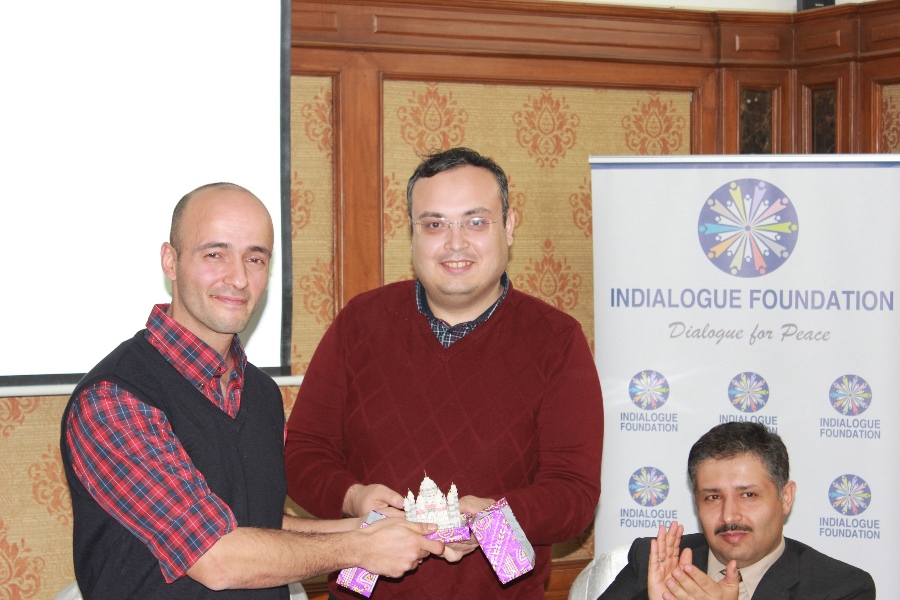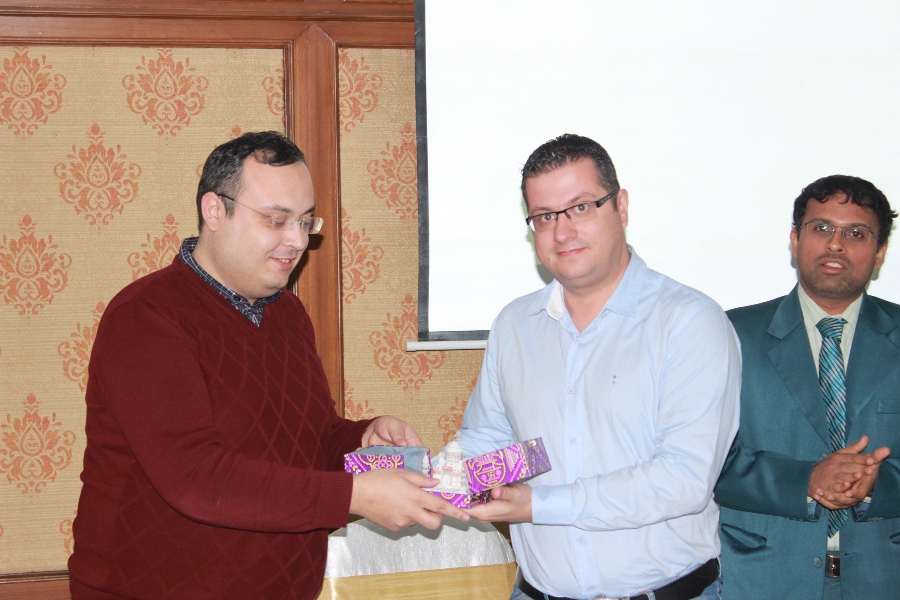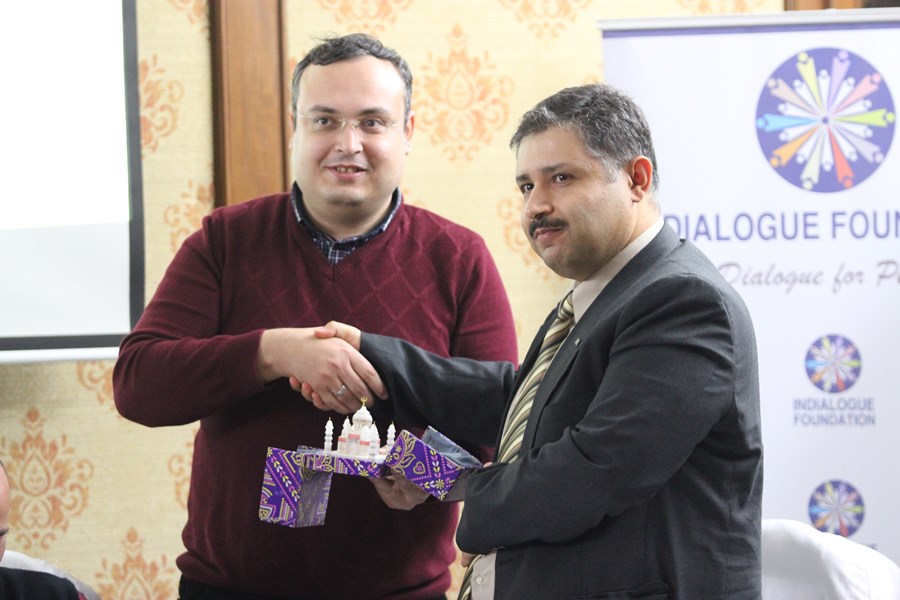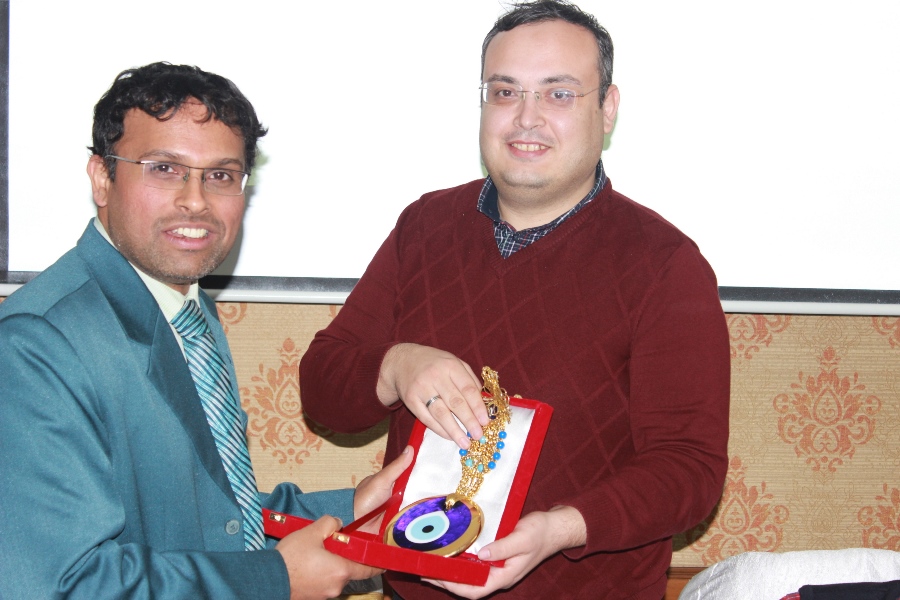NEW DELHI, 28/01/2016: Acknowledging the importance of the issue Indialogue Foundation decided to convene a Panel Discussion on “Security Crisis in West Asia: Is There a Way Out?” With a particular focus on finding the ways out of the crisis in West Asia, and discussing the best possible strategy to ensure peace in the region. The panel featured academic experts, visitors from the abroad, and senior academic voices, creating a robust dialogue that spanned issues from settling civil wars to rebalancing peace and civility. The panel discussion was chaired by Dr. Sreeram Chaulia Professor , Dean and Executive Director of the Centre for Global Governance and Policy (CGGP) at the Jindal School of International Affairs of O.P. Jindal Global University. The core of the panel was consisted of Dr. Oguz Dilek (Associate Professor at the Department of International Relations at Zirve University, Gaziantep, Turkey) Andreas Kotelis (Assistant Professor at the department of International Relations, Zirve University, Gaziantep, Turkey) and Alper Y. Dede (Assistant Professor in Zirve University, Gaziantep, Turkey).
Words of Welcome & Opening Statement;
After proposing the words of welcome the President of Indialogue Foundation, Bilal Acikgoz introduced the panelists and pointed out that the purpose of the panel to discuss the ways ensuring the peace, justice and redressal of problems in the region. Carrying forward his words further the program coordinator has noted that Indialogue Foundation on its very default praxis has always been furnishing a platform to discuss the issues ranging from social, cultural, interfaith and intercultural dialogue, to the current issues as well. This event is also a step forward towards developing a better mutual understanding. Thus, a broad-based participation and cohesion is a vital component at every stage of policy development and this panel is not but an attempt to pore over the prospects of the issue and discuss the ways out of the crisis in west Asia. With a deep sense of appreciation to the chair, he requested him to take up course of discussion further.
Contributions by panelists:
In his opening remarks as moderator and chair of the discussion, Dr. Sreeram Chaulia has highlighted the potential constructive role which India can potentially play in the region to take it back on track. Then, after introducing the panelists and highlighted their considerable experience and expertise in the field he asked the panelists to reflect on the Issue.
The Panelists, out of their excitement of being in India have admired open heartedly the hospitality they received from the people in India. Turning to conversation they stood up to deal with the theoretical and practical dilemma along with giving a general overview of historical trends related to how civil wars end and the factors that are more likely to produce lasting negotiated settlements to end civil wars.
They have underpinned all their discussion about security and claimed that by abiding and appreciating the collective security hence the Community Development Approach is the only way out of the crisis in West Asia. Outlining the historical development and underlying assumptions of different approaches they explored both the structure and practice of community development around the world. With an understanding of the structural and practical issues of community development approach and by avoiding the revengeful feelings a favorable condition for peace can be created in the region, they added.
The panelists suggested that this is where the others can perhaps play a role by helping the regional actors understand that their long-term security interests would be better served if they were instead to encourage their various proxies to seek a negotiated peaceful settlement rather than a decisive military victory.
It was generally agreed that the standard and linear policies should be formulated in a more open, engaging, and dialogic, positive, proactive, and comprehensive way so as to avoid all the pitfalls associated and experienced with reactive policy-making and messaging.
Following the panelist’s talks the chair has opened the panel for comments and questions from audience. After taking comments and questions from them the Chair gave the floor to the panelists for their observations and finally ended up with his concluding remarks by summing up the talks of the panelists and thanked the participants for taking the time to join this dialogue.
Page Hits–355
